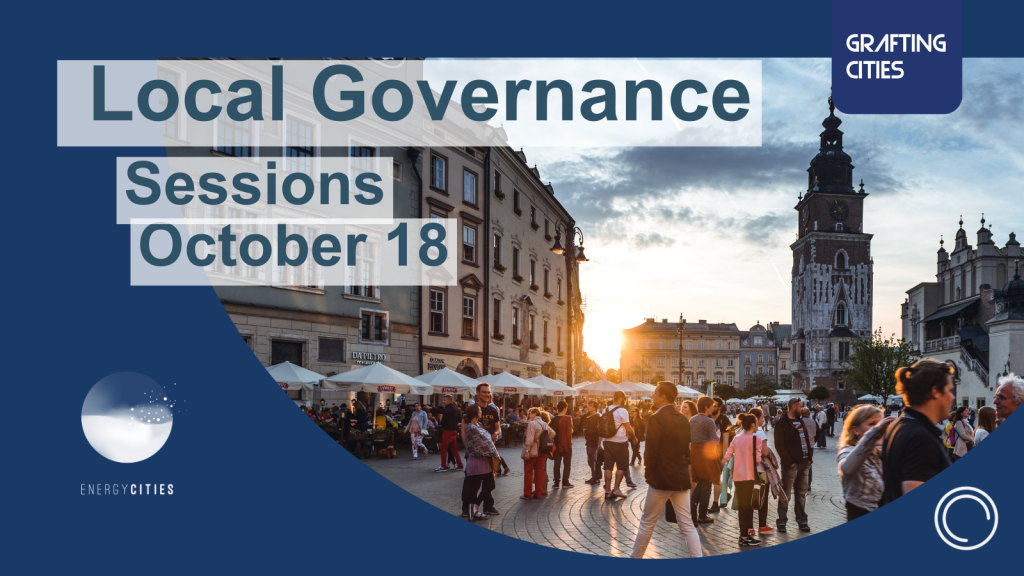Breaking the silos between municipal departments to foster transversal cooperation for climate action
From the Netherlands to Spain and Italy, discover how some cities are embracing collaborative approaches to address energy and climate issues.
Cooperation within local governments is essential to effectively tackle the complex and multifaceted challenge that is climate change. This is why many municipalities are implementing transversal initiatives that foster collaboration across various departments and services, aimed at implementing the green transition at local level.
From city strategists to cross-cutting departments and extraordinary taskforces, discover the different innovative approaches cities are taking to break the silos within their governments and drive meaningful change at local level.
Dedicated city strategists connecting the dots in Assen and Valencia
One noteworthy example of transversal cooperation can be found in the Dutch city of Assen. Recognizing the importance of interconnecting different city departments, Assen hired a dedicated city strategist responsible for connecting the dots between different city departments and fostering collaboration. By breaking down silos and promoting cooperation, this initiative has facilitated more effective climate action across the municipality. The city strategist, François Kloosterhuis, remarks
“It is exciting to connect new developments and turn them into opportunities. And to make it more sustainable, I will connect different departments so that everybody can benefit. We all want to make our municipality as nice as possible. Thinking in silos can limit your imagination. Working together enables new opportunities and solutions. An example: in Assen (69,000 inhabitants) we accommodate 2500 refugees. We have 500 Ukrainian refugees and 75% of them is working. Why? They want to work and because a lot of companies, in different branches, have a shortage of personnel. This is a win-win situation for them. Ukrainians in the Netherlands have this opportunity. We started a lobby to change our national legislation, so that other refugees will have the same opportunities. It will benefit our local economy. We are working with schools and universities to develop courses, so that they can use their skills and knowledge in the Netherlands as well. We have a shortage of skilled personnel in the building sector and in making houses more energy efficient. How wonderful would it be if refugees can be the answer for one of our challenges in the energy transition. Their legacy, our legacy. And if they can and want to return to their countries, their new skills will enable them to rebuild their own society.”
In Spain, the city of Valencia has also hired a city strategy coordinator dedicated to bringing all departments together in the framework of their Urban Agenda and their Mission Climate Neutral City, as part of the EU Mission of climate-neutral and smart cities by 2030. Regular interdepartmental meetings ensure the need of working more horizontally between departments and better integrate the work done by individual department to avoid overlaps, lack of coordination, and misunderstandings that could result from informational gaps and unclear project objectives. Furthermore, to overcome the vulnerability of long-term objectives to political election cycle, the city ensured to obtain large majority approval of the plans by all political colours, to have a long-time horizon for the implementation of the plan.
Fostering Smart Cities with interdisciplinary departments in Amsterdam and Munich
The city of Amsterdam, another leading municipality, has established a cross-sectorial department for smart cities. This department serves as a platform for dialogue and cooperation among various city departments. By embracing transversal collaboration, Amsterdam aims to build a sustainable future.
Likewise, in Munich, each department has designated a representative to work in an interdisciplinary department focused on smart cities. In this case, it’s the city’s Mayor who has directly encouraged interdisciplinarity and cooperation, taking a more top-down approach. Like in Valencia, this initiative has demonstrated the importance of political support for these cross-cutting initiatives to run smoothly, as they ensure that the department has the necessary resources and influence to have a real impact.
An extraordinary taskforce in Florence
Meanwhile, the city of Florence has established a successful integration of transversal initiatives. In 2010, Florence established an extraordinary taskforce, which became an integral part of the city’s ordinary activities and integrated into the governance system of the city. This taskforce, made up of several departments, aimed to involve them in environmental planning decisions and accessing their technical capabilities. Under the coordination of the city manager, directors of individual departments were empowered to participate and contribute to the task force’s meetings, creating a robust framework for collaborative decision-making.
Municipalities face the urgent need for sustainable solutions and breaking the silos between municipal departments is proving to be a valuable approach. These initiatives break down barriers, foster collaboration, and unleash the collective potential of municipalities to address energy and climate issues. By learning from successful models and addressing the obstacles encountered, cities can pave the way towards a more sustainable future.
Want to dive deeper?
Don’t miss the opportunity to engage face-to-face with other municipal representatives also working on breaking silos within their governments at our forum in Modena in October (18-20 Oct)! Register now and make sure to sign up for the session “Overcoming silos in city departments to drive a systemic transition to climate-neutrality and resilience” on October 18th!


